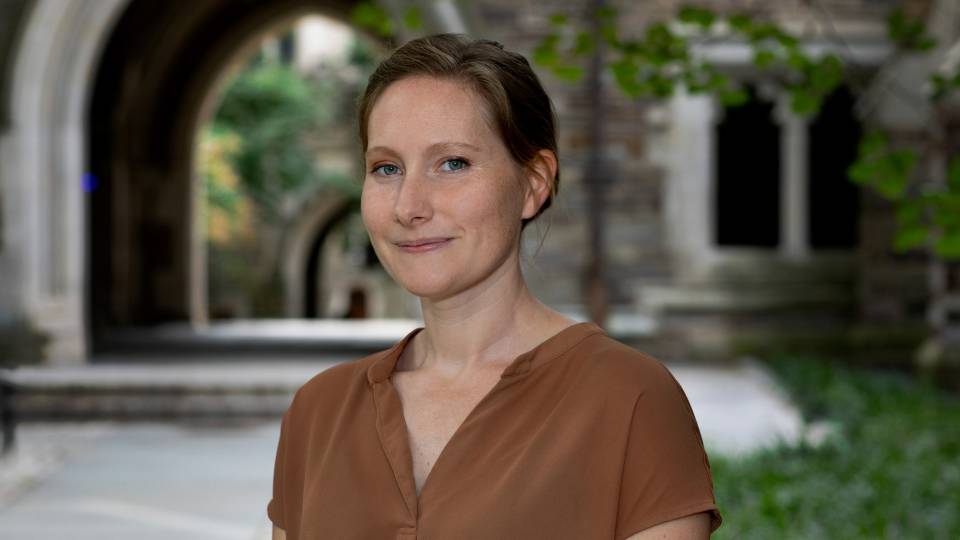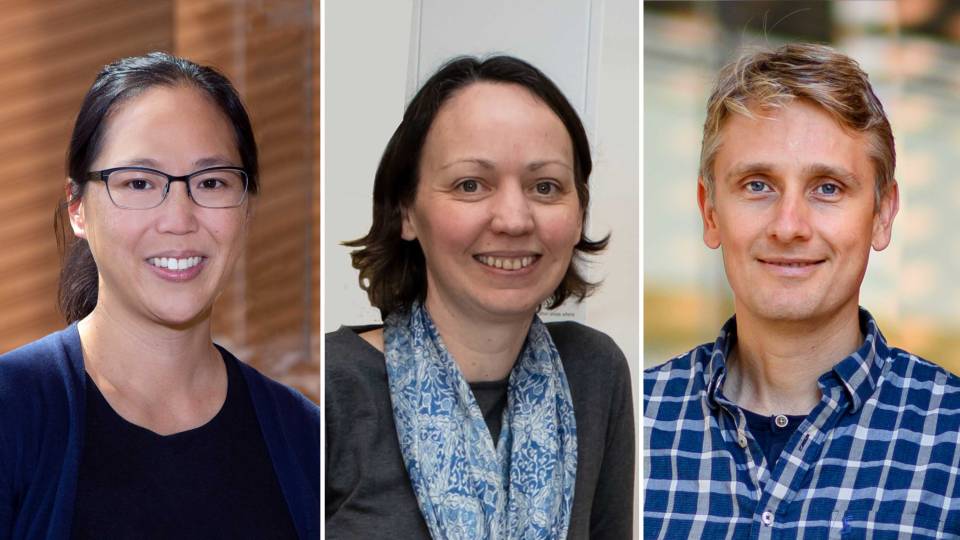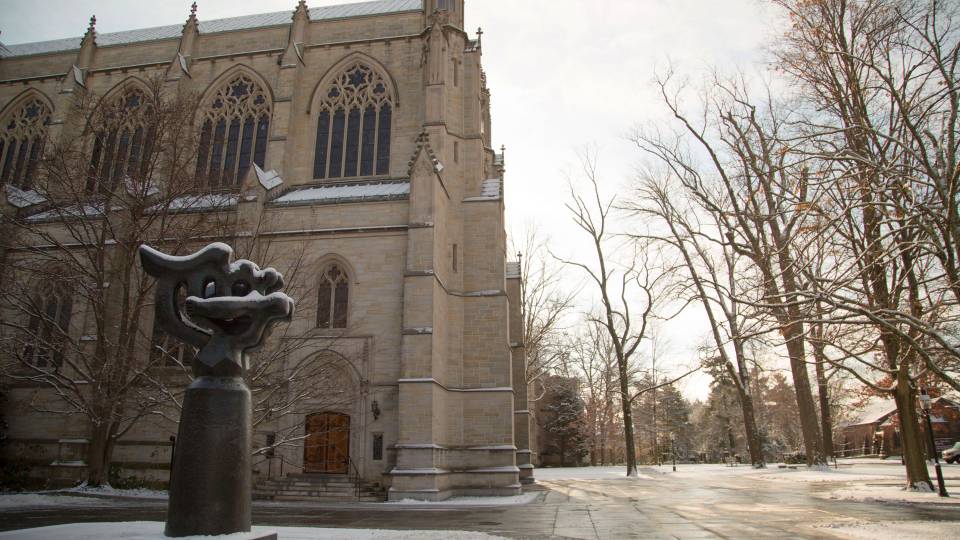Celeste Nelson, an assistant professor of chemical engineering, and Jason Petta, an assistant professor of physics, have been chosen to receive the highly selective David and Lucile Packard Foundation's Fellowships for Science and Engineering.
The fellowship program was founded in 1988 to help promising early-career professors pursue science and engineering research with few restrictions and little paperwork. Each year a panel of distinguished scientists and engineers selects 20 researchers to receive $875,000 each over a period of five years.
Nelson received a Ph.D. in biomedical engineering from Johns Hopkins University in 2003. She conducted postdoctoral research at the Department of Cancer Biology at the Lawrence Berkeley National Laboratory, before joining the Princeton engineering faculty in 2007.
Her research focuses on understanding how the final architectures of living tissues and organs is determined, specifically focusing on how individual cells integrate complex biological signals (both biochemical and mechanical) dynamically and spatially within tissues to direct the development of organs.
Petta earned his Ph.D. in physics from Cornell University in 2003. He worked as a postdoctoral fellow at Harvard University before joining the Princeton faculty in 2007.
Petta is an experimental condensed matter physicist. His research group isolates single quantum states in semiconductor compounds by making super-small devices using advanced nanofabrication techniques. He is interested in controlling single quantum states in order to create "quantum bits," the elementary building blocks of a future quantum computer. In addition, he is performing experiments that will improve the understanding of how the fragile quantum states are destroyed due to interactions with the environment.
"The fellowship program provides significant funding for the fellows to advance their research to new levels at a critical period early in their careers," said Lynn Orr, a Packard Foundation trustee, the chair of the fellowship advisory panel and the Kellen and Carlton Beal Professor at Stanford University. "These talented scientists will use this funding to find innovative solutions to major scientific challenges."
The new class of fellows joins a distinguished group of researchers working across science and engineering disciplines, many of whom have gone on to win other distinguished awards. In the past 20 years, Packard fellows have contributed significantly in areas ranging from early universe observations to genetics of the human population, from quantum mechanics to ancient climates, and from cryptography to the rapid identification of viruses.



